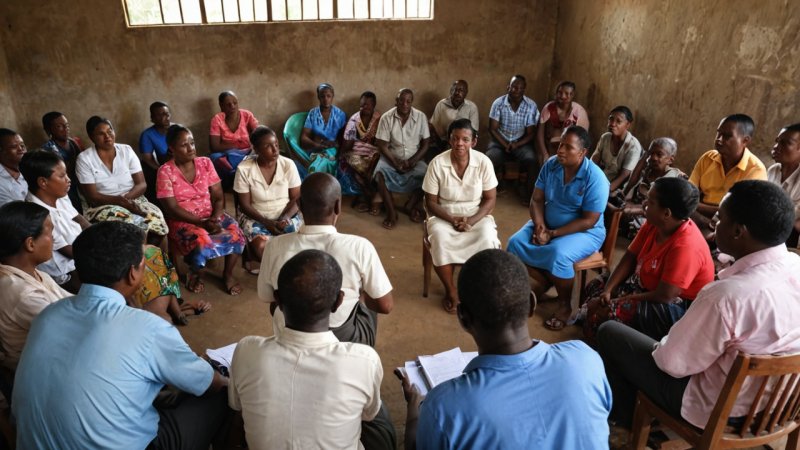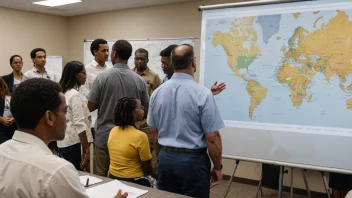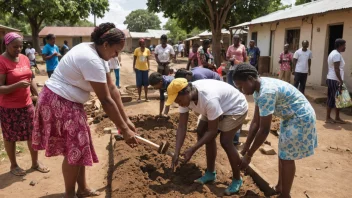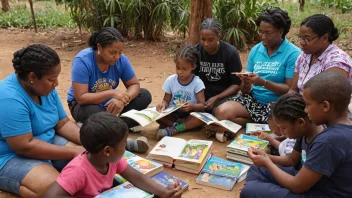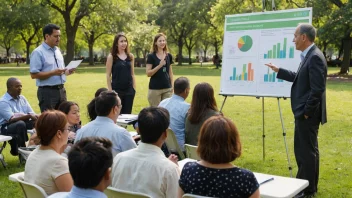What is the role of local governments in poverty alleviation?
Local governments play a crucial role in poverty alleviation by implementing policies and programs that directly impact their communities. They are responsible for addressing local needs through tailored solutions, providing essential services, and fostering economic development.
How do local governments identify poverty in their communities?
Local governments often conduct surveys, assessments, and utilize census data to identify poverty levels in their communities. They may also collaborate with local organizations and stakeholders to gather insights on the specific challenges faced by residents.
What programs do local governments typically implement to combat poverty?
- Food Assistance Programs: Local governments may offer food banks, meal programs, and nutritional education to help families access healthy food.
- Housing Assistance: Initiatives such as subsidized housing, rental assistance, and homelessness prevention programs aim to provide stable living conditions.
- Job Training and Employment Services: Local governments often provide vocational training and job placement services to help individuals gain employment.
- Healthcare Services: Access to affordable healthcare is critical, so local governments may run clinics and health education programs.
How can individuals support local government efforts to reduce poverty?
Individuals can support local government efforts by:
- Volunteering: Offer time and skills to local programs that assist those in need.
- Advocacy: Engage in advocacy efforts to promote policies that support poverty alleviation.
- Participating in Local Meetings: Attend town hall meetings to voice concerns and suggest solutions related to poverty in the community.
- Educating Others: Share information about local resources and programs available to those experiencing poverty.
What challenges do local governments face in addressing poverty?
Local governments encounter various challenges, including:
- Limited Resources: Budget constraints can hinder the ability to provide sufficient services and programs.
- Coordination with Other Agencies: Effective collaboration with state and federal agencies, as well as non-profits, is essential but can be complicated.
- Stigma and Awareness: There may be a lack of public awareness about the extent of poverty and the resources available to combat it.
How do local governments measure the success of their poverty alleviation programs?
Success can be measured through various metrics, including:
- Reduction in Poverty Rates: Tracking changes in the percentage of the population living below the poverty line.
- Employment Rates: Monitoring job placement and retention rates among participants in job training programs.
- Housing Stability: Evaluating the number of individuals and families who secure stable housing after receiving assistance.
- User Feedback: Collecting testimonials and feedback from program participants to assess their experiences and outcomes.
What role do community organizations play in supporting local governments?
Community organizations often act as partners to local governments by:
- Providing Services: They may offer direct services that complement government programs, such as food banks or job training.
- Advocacy: Advocating for policies and resources that benefit low-income residents.
- Community Engagement: Engaging residents to ensure their voices are heard in the decision-making process.
Can local governments collaborate with businesses to address poverty?
Yes, local governments can collaborate with businesses through initiatives such as:
- Job Creation Programs: Partnering with local businesses to create job opportunities for residents.
- Support for Local Enterprises: Providing incentives for businesses that hire locally or support community development.
- Corporate Social Responsibility: Encouraging businesses to engage in community service and support local poverty alleviation efforts.
In conclusion, local governments are pivotal in addressing poverty through targeted programs and policies. By understanding their role and actively participating, individuals can contribute to meaningful change in their communities. Engaging with local government initiatives and supporting community efforts can lead to a more equitable and just society.
